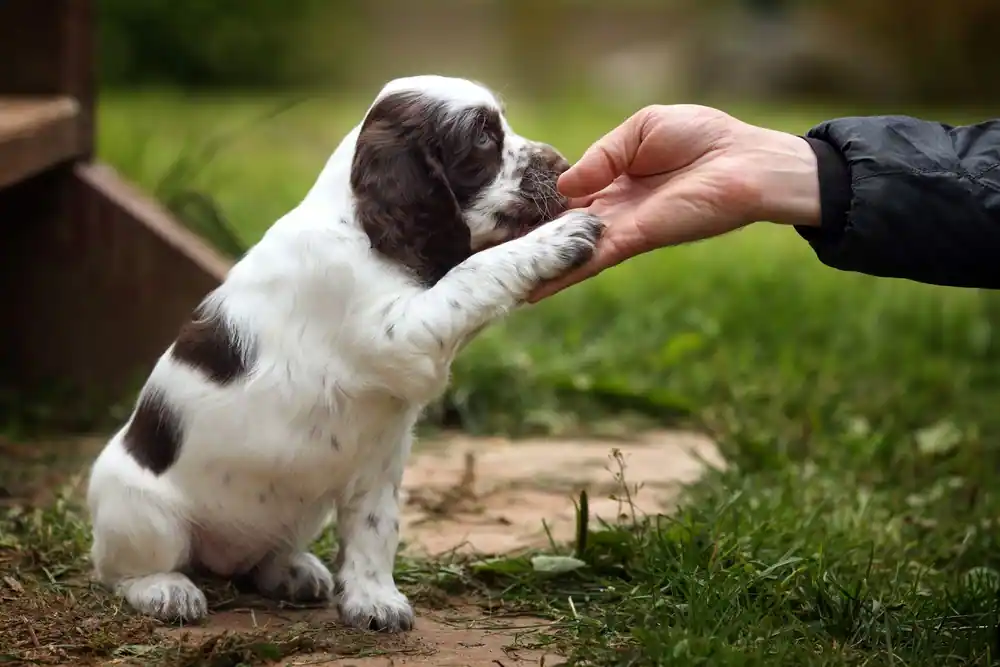Bringing a new puppy home is an exciting and joyful experience, but puppy training basics also comes with its challenges. Training is one of the most important tasks you’ll undertake as a new puppy parent. Effective puppy training ensures a well-behaved dog and strengthens the bond between you and puppy.
Understanding Your Puppy
Puppy Behavior and Development
Puppies are like little sponges, absorbing everything around them. Understanding their behavior and development stages is crucial for effective training. Puppies undergo rapid physical and mental growth during the first few months. They explore their world through play, often biting, chewing, and barking. Recognizing these behaviors as natural developmental stages helps you approach training with patience and understanding.
Importance of Socialization
It involves exposing issue your puppy to different people, environments, and experiences in a positive way. Proper socialization helps prevent behavioral issues and ensures your puppy grows up to be a confident and well-adjusted adult dog. Aim to introduce your puppy to new experiences regularly from a young age.
House Training
Establishing a Routine
House training is often the first and most important task for new puppy owners. Establishing a routine is key to successful house training. Take your puppy outside frequently, especially after meals, playtime, and naps. Consistency helps your puppy understand where and when to go potty.
Crate Training Basics
Crate training is valuable for house training and providing your puppy with a safe space. Start by gradually introducing your puppy to the crate, using treats ,behavior and praise to create positive associations. The crate should never be used as a punishment. Instead, it should be a cozy den where your puppy feels secure.
Dealing with Accidents
When they happen, it’s important to remain calm and avoid punishment. Clean up accidents thoroughly routine to remove any lingering odors that might attract your puppy to the same spot. If accidents persist, evaluate your routine and make adjustments as needed.
Biting and Chewing
Puppies explore the world with their mouths. Provide appropriate chew toys and discourage biting and chewing on furniture and hands. Excessive barking can be a nuisance. Identify the cause and train your puppy to bark less using commands and positive reinforcement.
Separation Anxiety
Many puppies experience separation anxiety. Gradually increase the time your puppy spends alone to help them adjust. Socialization is puppy training basics vital for your puppy’s development. It helps them become comfortable around different people, animals, and environments. Expose your puppy to various experiences gradually.
Recall Training
Recall training ensures your puppy comes back to you when called. Practice in a safe, enclosed area, and reward your puppy for returning promptly.Consider enrolling your puppy in obedience classes. Professional trainers can provide valuable behavior guidance and support. Address the underlying issue and use happy dog positive reinforcement to reward quiet behavior. Consistency is key puppy training basics to reducing excessive barking.
Conclusion
Training your puppy requires patience and consistency. With the right techniques, you can raise a well-behaved and happy dog. Remember, the effort you put into training now will pay off for years.Positive reinforcement is an effective and humane training method that rewards desired behaviors. Positive reinforcement creates a puppies positive learning environment and boosts your puppy’s confidence.
FAQ
What is the first thing you should train your puppy?
Basic training lessons should take place in a familiar, distraction-free environment. You and your puppy will eventually transition to working outside and in new spaces, but the training initial stages should be happening in a low-key spot so that it’s easy for your pup to focus on you.
Mastering Basic Puppy Training?
How to optimized Puppy training basics?
Puppies can begin learning basic obedience techniques at the age of just eight weeks old, essentially as soon as you bring them home. It’s important that your puppy views any type of training you do as a positive experience that they look forward to each time.

